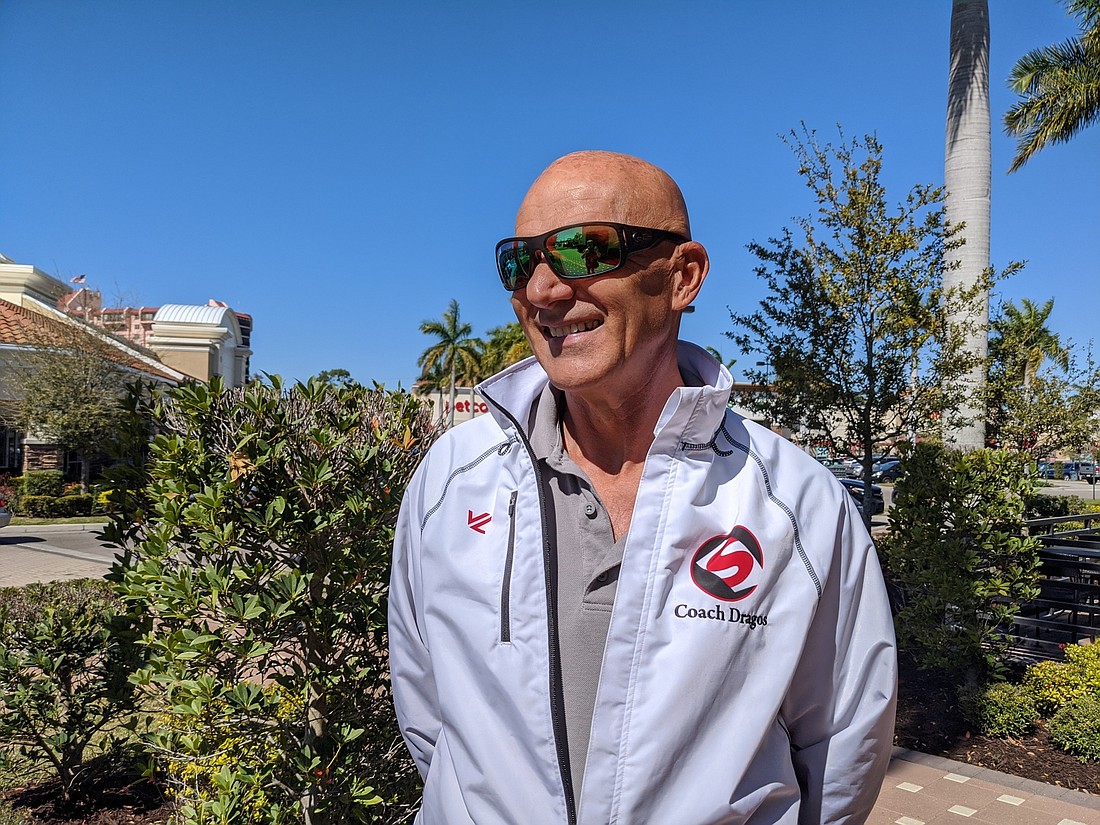- November 24, 2024
-
-
Loading

Loading

When the 2020 U.S. Rowing Olympic Team Trials come to Nathan Benderson Park March 17-21, a handful of rowers will see their dreams come true.
I wanted to find some perspective on what a win at the trials, and thus a spot on the U.S. Olympic team, would mean to the athletes participating, and I found that perspective in Dragos Alexandru.
Alexandru is the coach of Sarasota County Rowing Club, and will be a volunteer at the trials, helping the shells launch off the pier. More importantly for these purposes, he's also a former Olympian, reaching the 1980 Moscow Olympics with Romania. While there are some differences in qualification methods — Romania's selection camps are more intensive and longer, he said, and also in one place instead of being spread around the country — the feeling of reaching the peak of your sport is the same.
"Rowing is an obsession," Alexandru said. "Reaching this point is a four-year cycle. You put your life on hold to do this, and making the team is a celebration of that being worth it. It is a wonderful feeling.
"You are nervous (before the trials), but you need to stay calm under the pressure. Once you put your oar in the water, everything else needs to leave your mind."
The 6-foot-3 Alexandru said he would go through two to three workouts per day at Romania's camps, with rowers eating and sleeping there to maximize everyone's time. They would get Sundays off, and would get a month's vacation after important events, like the World Rowing Championships. Otherwise, it was all rowing all the time, unlike U.S. athletes, who are able to hold jobs and do other things outside of rowing while in training. Alexandru also said he learned he would make his 1980 team about three weeks before the Olympics, whereas these U.S. rowers will have more time to prepare.
For those that qualify, the 2020 Tokyo Olympics themselves — if they aren't canceled because of COVID-19, a real concern of Alexandru's — will be everything they dreamed and more.
"When I went to Moscow, I didn't speak Russian or any other language," Alexandru said. "You still find a way to connect with people from other countries. You bond over the sport. Yes, it is competitive, quite competitive, but you also make friends and recognize what it took for everyone to get there. The whole village is respectful of one another's talents and journeys."
Alexandru didn't win a medal at the 1980 Olympics, but even if he had, he wouldn't have it today. Alexandru, immigrated to the United States in 1984, living in New York City until he moved to Sarasota. He became a citizen in 1990. When he left Communist Romania, they ordered him to turn in everything that was "theirs." That included all artifacts from the country's Olympic games: clothing, memorabilia, even pictures. He has nothing left from that time but his memories.
That's OK, though. Alexandru loves the United States, and while living here, he has seen the sport's popularity rise firsthand. It thrills him to see these elite athletes get their time in the spotlight.
"This isn't exactly a 'fun' sport like football or basketball," Alexandru said. "We don't row in front of thousands of people often, but here in Sarasota-Bradenton, people are starting to recognize it and support it. The difference in the last 10 to 15 years has been huge, even in the last three since the World Rowing Championships. It is becoming a mecca, and it is great to see."